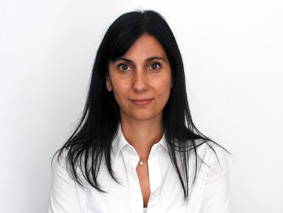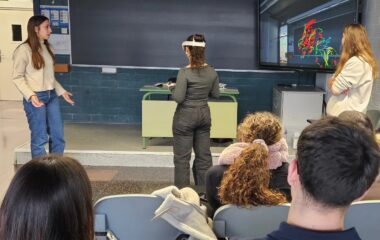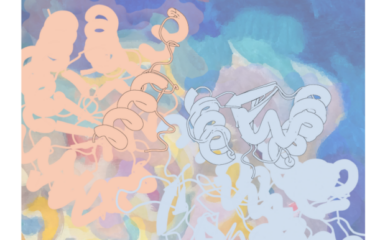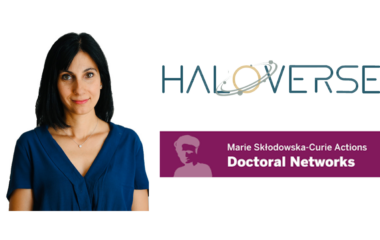Prof. Osuna obtained her PhD with academic honors in 2010 at the University of Girona (Spain), and moved to the University of California, Los Angeles (USA) with a Marie Curie International Outgoing Fellowship (IOF). She obtained a JdC postdoctoral contract at the UdG, a 5-year RyC contract (RYC-2014-16846), and then she obtained an ICREA Research position. In 2024, she was promoted to part-time Full professor at the University of Girona.
The group of Prof. Osuna was established thanks to the awarded 2015 European Research Council project – Starting grant project (ERC-2015-StG-679001) and focuses on the development of new computational tools and approaches for computational enzyme design. Her group is currently funded by the European Research Council (ERC) -Consolidator Grant project FASTEN (ERC-2022-CoG-101088032, PI: Osuna), Proof of Concept project KITZYME (ERC-2023-POC-101158166, PI: Osuna), MSCA-Doctoral Networks projects COMENZE (HORIZON-MSCA-2023-DN-101169327) HaloVerse (HORIZON-MSCA-2024-DN-JD-101226357) and ELEGANCE (HORIZON-MSCA-2024-DN- 101226960) PI: Osuna, MINECO project THERAZYMES (PID2024-155349NB-I00, PI: Osuna) and Prueba de Concepto project EVOCAT (PDC2022-133950-100, PI: Osuna).
She been recently awarded the 2025 IX Banc Sabadell Fundation award on Sciences and Engineering, 2025 BIOTRANS Junior Award, 2024 Chemitry Europe Lecture Award (JIQ-RSEQ), 2023 Young Spanish National Award in Chemistry (María Teresa Toral), 2023 Emerging Scientific Talent award of Societat Catalana de Química, 2021 EuChemS lecture award, the Catalan National Research Award – Young Talent 2019 from Fundació Catalana de Recerca i Innovació (FCRi), the Young Researcher award by the Royal Spanish Society of Chemistry (RSEQ 2016), Research award by the Fundación Princesa de Girona (FPdGi 2016- Science category), among many others.
- sec.iqcc@udg.edu
- +34 972 41 83 57
Osuna, Sílvia
Computational design of proficient enzymes: exploring the molecular basis of biocatalysis
Contact info:
Dr. Sílvia Osuna
silvia.osuna@udg.edu
Tel. (+34) 972 41 93 21
Website

Selected publications
Guillem Casadevall, Cristina Duran, Sílvia Osuna
AlphaFold2 and Deep Learning for Elucidating Enzyme Conformational Flexibility and Its Application for Design
JACS Au, 2023, 3, 1554-1562
DOI: 10.1021/jacsau.3c00188
Guillem Casadevall, Cristina Duran, Miquel Estévez-Gay, Sílvia Osuna
Estimating conformational heterogeneity of tryptophan synthase with a template?basedAlphafold2 approach
Protein Science, 2022, 31, e4426
DOI: 10.1002/pro.4426
Sílvia Osuna
The challenge of predicting distal active site mutations in computational enzyme design
WIREs Comput Mol Sci, 2020, 11, e1502
DOI: 10.1002/wcms.1502
Miguel A. Maria-Solano, Javier Iglesias-Fernández, Sílvia Osuna
Deciphering the Allosterically Driven Conformational Ensemble in Tryptophan Synthase Evolution
J. Am. Chem. Soc., 2019, 141, 13049-13056
DOI: 10.1021/jacs.9b03646
Xi Chen, Hongliu Zhang, Miguel A. Maria-Solano, Weidong Liu, Juan Li, Jinhui Feng, Xiangtao Liu, Sílvia Osuna, Rey-Ting Guo, Qiaqing Wu, Dunming Zhu, Yanhe Ma
Efficient reductive desymmetrization of bulky 1,3-cyclodiketones enabled by structure-guided directed evolution of a carbonyl reductase
Nat Catal, 2019, 2, 931-941
DOI: s41929-019-0347-y
Dr. Sílvia Osuna
Research overview
Billions of years of evolution have made enzymes superb catalysts capable of accelerating reactions by as many as seventeen orders of magnitude. This rate acceleration is achieved by decreasing the activation barriers of reactions, making them possible at lower temperatures and pressures. Enzymes (i.e. biocatalysts) are indeed the most efficient, specific and selective catalysts known. They operate under biological conditions, are biodegradable, non-toxic, their high selectivities and efficiencies reduce the number of work- up steps, and provide product in higher yields. These characteristics make enzyme-catalyzed processes an attractive alternative for chemical manufacturing. However, the use of enzymes in industry is limited, as most of processes do not present a biocatalyst to catalyze and accelerate the corresponding reactions. The ability of routinely designing enzymes for any target process will have large socio-economic impacts, as the production costs of many drugs will be reduced and will allow industries to use environmentally friendly alternatives. However, the routine design of enzymes for any target reaction has not yet been achieved. This is in part motivated by the imprecise knowledge of the underlying physical principles of biocatalysis, which makes the alteration of the natural activity of enzymes towards synthetically relevant targets a tremendous challenge for biochemistry. Current computational and experimental approaches are able to confer natural enzymes new functionalities but are economically unviable and the catalytic efficiencies lag far behind their natural counterparts.
We work in the design of new enzymes for distinct processes important for their potential applications in medicine. We explore the structural basis of improved catalysis achieved by the experimental directed evolution (DE) technique through computational modeling, and are currently developing a new computational protocol based on Molecular Dynamics and network models that reduce the complexity of the enzyme design paradigm. Our computational predictions are tested in the lab to finally elucidate the potential of this genuinely new computational approach for mimicking Nature’s rules of evolution.
We collaborate with many groups, being the most relevant ones: Prof. K. N. Houk (UCLA, USA), Prof. Y. Tang (UCLA, USA), Dr. G. Huisman (Codexis).
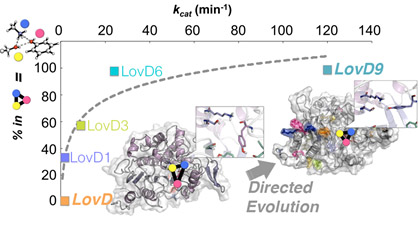
We additionally work on the computational exploration of the chemical reactivity and properties of carbon-based materials. This topic is related to Dr. Osuna’s PhD thesis and she has collaborations with the groups of Prof. L. Echegoyen (UTEP), Dr. Y. Yamakoshi (ETH Zurich), Prof. J. M. Poblet (URV), and Prof. N. Martín (UCM).
People
Principal Investigator
Staff and Postdocs
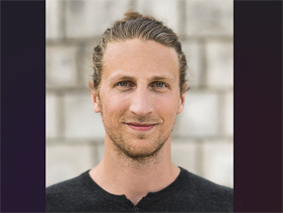
Alexander Swoboda
Postdoc
Supervisor:- S. Osuna
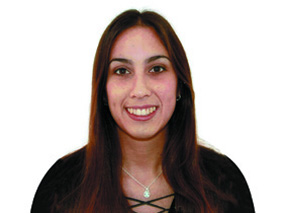
Cristina Duran
Postdoc
Supervisor:- S. Osuna
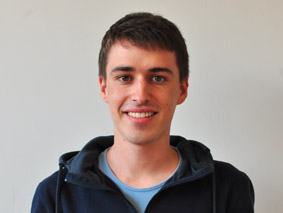
Eduard Masferrer
Postdoc
Supervisor:- S. Osuna
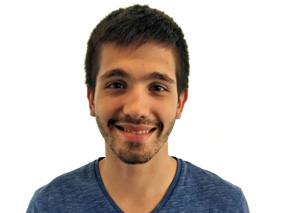
Guillem Casadevall
Postdoc
Supervisor:- S. Osuna
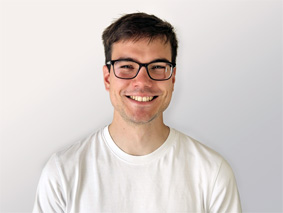
Hannes Meinert
Postdoc
Supervisor:- S. Osuna
PhD and MACMoM students
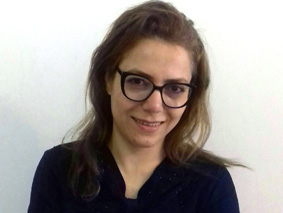
Akram Doustmohammadi
PhD student
Supervisor:- S. Osuna
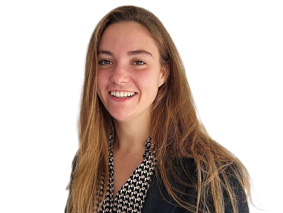
Esther Pruna
PhD student (FI-STEP)
Supervisor:- S. Osuna
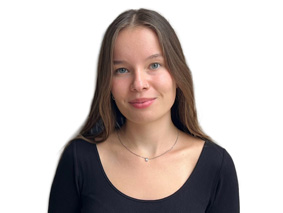
Evgeniia Kostina
PhD Student (MSCA ITN)
Supervisor:- S. Osuna
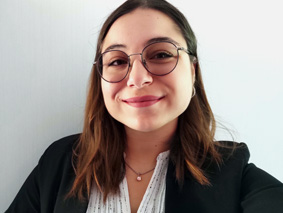
Janet Sánchez
PhD student (FPI)
Supervisor:- S. Osuna
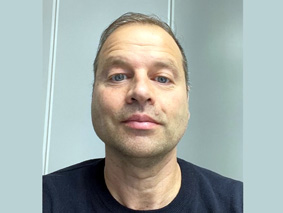
Javier Moreno
PhD student
Supervisor:- S. Osuna
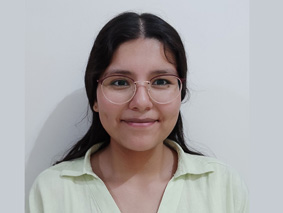
Jonnely Rissell Luizaga
PhD student
Supervisor:- S. Osuna
- M. Swart
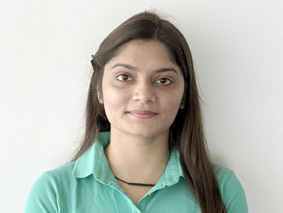
Rupal Sharma
PhD Student (IF-UdG)
Supervisor:- M. Swart
Funding
ERC
Researcher: Dr. Sílvia Osuna
Reference: ERC-2022-CoG-101088032
Funding: 1.996.250 €
Period: 01/10/2023 – 30/09/2028
ERC Proof of concept
Researcher: Dr Sílvia Osuna
Reference: ERC-2023-POC-101158166
Funding: 150.000 €
Period: 01/07/2024– 31/12/2025
Juan de la Cierva
Researcher: Dr. Eduard Masferrer (S. Osuna))
Reference: JDC2023-052689-I
Funding: – €
Period: 01/03/2025-28/02/2027
MCIU Proyectos I+D
Researcher: Dr. Sílvia Osuna
Reference: PDC2022-133950-100
Funding: 143.750 €
Period: 01/12/2022 – 31/12/2024
Researcher: Dr. Sílvia Osuna
Reference: PID2021-129034NB-100
Funding: 157.300 €
Period: 01/09/2022 – 31/08/2025
Marie Skłodowska-Curie
Researcher: Dr. Sílvia Osuna
Reference: HORIZON-MSCA-2023-DN-101169327
Funding: 2.563.653,60 € (UdG: 251.971,20€)
Period: 01/03/2025 – 28/02/2029
Researcher: Prof. Sílvia Osuna
Reference: HORIZON-MSCA-2024-DN- 101226960
Funding: 4.470.727,68 € (UdG: 282.188,16€)
Period: 2025-2029
Researcher: Prof. Sílvia Osuna
Reference: HORIZON-MSCA-2024-DN-JD-101226357
Funding: 3.869.142,72 € (UdG: 376.250,88 €)
Period: 2025-2030
AGAUR. Suport a grups de recerca.
Researcher: Dr. Sílvia Osuna
Reference: 2021 SGR 00487
Funding: 60.000 €
Period: 01/01/2022 – 31/12/2024
Collaborations
Nobu Tokuriki – University of British Columbia (Canada), collaboration with Sílvia Osuna.
Manfred Reetz – Max-Planck-Institut für Kohlenforschung (Germany), collaboration with Sílvia Osuna.
News
Chemistry Department open doors 2026
Last 29th January the Chemistry Department of the University of Girona opened its doors
Cover Protein Science on a naturally occurring standalone TrpB enzyme provides insights into allosteric communication within tryptophan synthase
The Protein Sci. journal features on its front cover of the December 2025 issue the
MSCA Doctoral Network (ELEGANCE)
The project ELEGANCE: Machine learning for integrated multi-parametric enzyme and bioprocess design, within
MSCA Doctoral Network (HaloVerse)
The project HaloVerse: Advancing Europe’s Next Generations on the Path to Sustainability –

